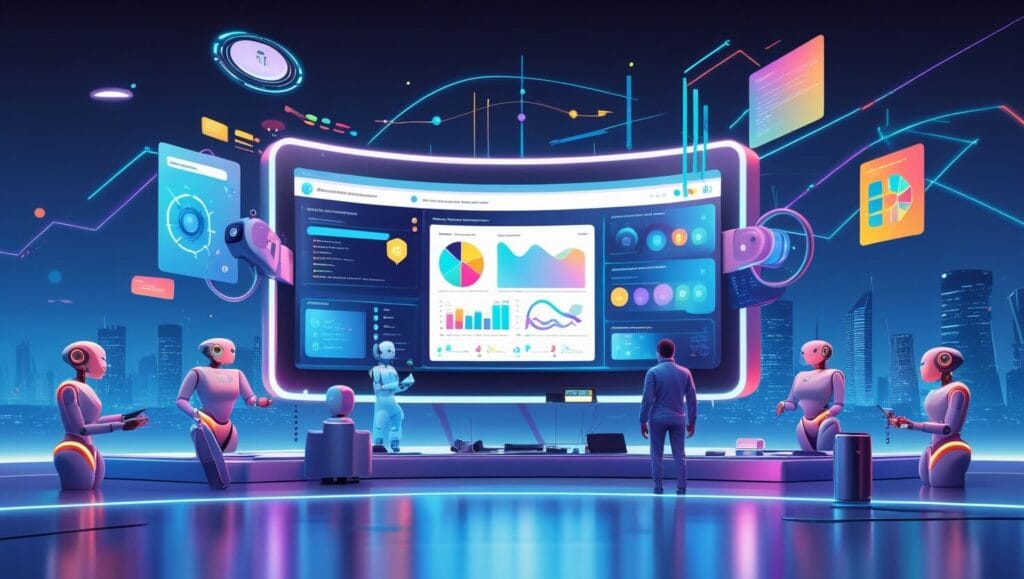
Have you ever wondered how some teams seem to effortlessly juggle multiple projects while others struggle with basic task management? The secret often lies in leveraging artificial intelligence to transform chaotic workflows into streamlined processes. As we move through 2025, AI project management tools have become game-changers for organizations of all sizes, revolutionizing how we plan, execute, and deliver projects.
The project management landscape has evolved dramatically over the past few years. According to recent industry research, teams using AI-powered project management solutions report 40% faster project completion times and 35% better resource allocation compared to traditional methods. These aren’t just impressive statistics – they represent real productivity gains that can make or break your team’s success.
In this comprehensive guide, I’ll walk you through the best AI project management tools available in 2025, sharing insights from my years of experience testing and implementing these platforms across various industries. Whether you’re managing a small startup team or coordinating enterprise-level initiatives, you’ll discover practical solutions that can transform your project management approach and deliver measurable results for your organization.
What Makes AI Project Management Tools Essential in 2025
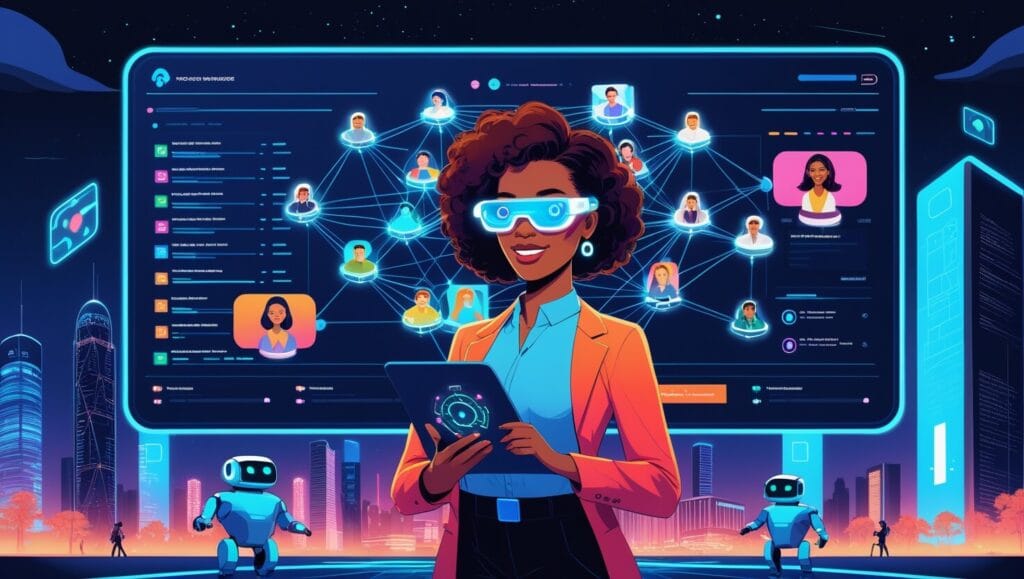
The evolution of AI project management tools has been nothing short of remarkable. When I first started exploring these platforms a few years ago, I was skeptical about whether artificial intelligence could truly understand the nuances of project management. Boy, was I wrong! The current generation of AI-powered project management software has completely changed how I approach everything from resource planning to risk assessment.
Modern AI project management tools leverage machine learning algorithms to analyze project data, predict potential bottlenecks, and suggest optimizations in real-time. These systems can process thousands of data points simultaneously, identifying patterns that would take human project managers hours or even days to recognize. The result is unprecedented visibility into project health, resource utilization, and timeline accuracy.
What sets today’s AI project management platforms apart is their ability to learn from your team’s specific workflows and preferences. Unlike traditional project management software that requires manual configuration, these intelligent systems adapt to your working style, automatically adjusting schedules, redistributing tasks, and even predicting when team members might become overloaded.
The integration capabilities of modern AI project management tools are equally impressive. They seamlessly connect with existing business applications, pulling data from multiple sources to create comprehensive project dashboards. This eliminates the need for constant context switching between different platforms, allowing teams to focus on actual work rather than administrative tasks.
Top AI Project Management Tools for 2025
Monday.com AI
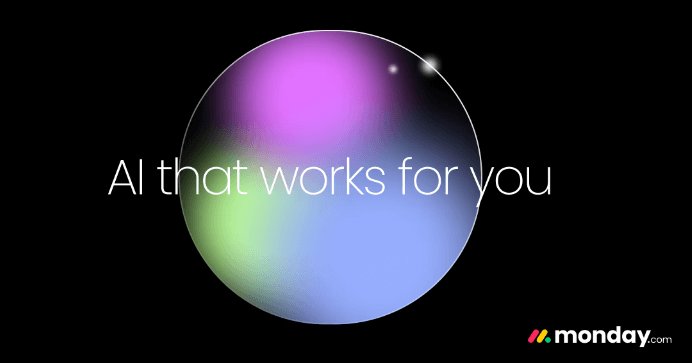
Monday.com has significantly enhanced its platform with AI capabilities that make project management feel almost intuitive. Their AI project management tools include predictive analytics that can forecast project completion dates with remarkable accuracy, often within a few days of the actual delivery date.
The platform’s AI assistant helps automate repetitive tasks like status updates, progress tracking, and resource allocation. What I particularly appreciate about Monday.com’s approach is how their AI learns from your team’s communication patterns. It can automatically categorize updates, prioritize tasks based on urgency signals in messages, and even suggest optimal team member assignments based on past performance data.
Key features that make Monday.com stand out include:
- Automated workflow optimization based on team performance patterns
- Predictive timeline adjustments that account for historical delays
- Smart resource allocation that prevents team member burnout
- AI-powered risk assessment that flags potential issues before they become problems
The pricing structure is reasonable, starting at around $8 per user per month for basic AI features, with more advanced capabilities available in higher-tier plans. For teams already using Monday.com, the AI upgrade feels natural and doesn’t require significant training or adjustment periods.
Asana Intelligence
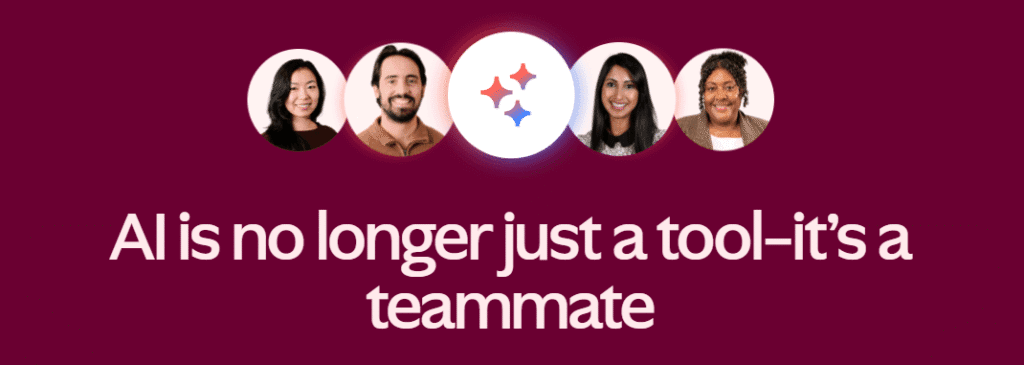
Asana’s AI project management tools have matured significantly, offering sophisticated automation and insights that rival enterprise-level solutions. Their Intelligence feature uses machine learning to analyze project data and provide actionable recommendations for improving team productivity and project outcomes.
One of the most impressive aspects of Asana Intelligence is its ability to automatically detect project dependencies and suggest optimal task sequencing. The system analyzes your team’s work patterns and can predict which tasks are likely to cause delays, allowing you to proactively address potential issues before they impact your timeline.
The platform excels at:
- Automatic task prioritization based on project goals and deadlines
- Intelligent workload balancing that prevents team member overcommitment
- Predictive analytics for budget and timeline forecasting
- Smart goal tracking that adjusts targets based on team performance trends
Asana’s AI capabilities are particularly strong for teams that manage multiple concurrent projects. The system can identify resource conflicts across different initiatives and suggest optimal scheduling to maximize efficiency. The user interface remains clean and intuitive, making it easy for team members to adapt to the AI-enhanced features without extensive training.
ClickUp AI

ClickUp has positioned itself as an all-in-one workspace with robust AI project management tools that cater to diverse team needs. Their AI assistant can generate project templates, create task descriptions, and even write meeting summaries based on project discussions and updates.
What sets ClickUp apart is its flexibility in accommodating different project management methodologies. Whether your team prefers Agile, Waterfall, or hybrid approaches, ClickUp’s AI adapts to your chosen framework and provides relevant insights and automation. The platform’s AI can analyze sprint performance, predict story point completion rates, and suggest process improvements based on team velocity trends.
Notable ClickUp AI features include:
- Automated project documentation and reporting
- Intelligent time tracking that learns from user behavior patterns
- AI-powered project templates that adapt to your industry and team size
- Smart notification management that reduces information overload
The pricing is competitive, with AI features available starting at $7 per user per month. ClickUp’s strength lies in its customization options, allowing teams to tailor the AI assistance to their specific workflows and requirements.
Trello with Butler AI

Trello’s Butler AI has transformed the simple Kanban board approach into a powerful project management system. The AI can automate card movements, create recurring tasks, and manage project workflows with minimal manual intervention.
Butler AI learns from your team’s board usage patterns and suggests automation rules that can streamline your processes. The system can automatically assign tasks based on team member availability, move cards between lists based on completion criteria, and even generate progress reports without manual data entry.
Key automation capabilities include:
- Smart card assignments based on team member expertise and availability
- Automated deadline reminders and escalation procedures
- Intelligent board organization that adapts to project phases
- AI-powered analytics that provide insights into team productivity patterns
Trello’s AI features are particularly appealing for smaller teams or those new to project management, as they provide sophisticated automation without overwhelming complexity.
Advanced AI Features Revolutionizing Project Management
The latest AI project management tools are incorporating advanced features that go far beyond basic task automation. These capabilities are fundamentally changing how we approach project planning, execution, and optimization.
Predictive analytics has become a cornerstone of modern AI project management platforms. These systems can analyze historical project data, team performance metrics, and external factors to forecast project outcomes with remarkable accuracy. I’ve seen teams avoid major delays by acting on AI predictions about resource bottlenecks and timeline risks weeks before they would have been apparent through traditional monitoring methods.
Natural language processing is another game-changer in AI project management tools. Modern platforms can understand and respond to conversational queries about project status, automatically generate reports from meeting notes, and even create task lists from email discussions. This reduces the administrative burden on project managers and ensures that important information doesn’t get lost in communication gaps.
Machine learning algorithms are continuously improving project management efficiency by learning from every interaction and outcome. These systems identify patterns in successful projects and apply those insights to future initiatives. They can suggest optimal team compositions, recommend resource allocation strategies, and even predict which project approaches are most likely to succeed based on similar past projects.
Real-time collaboration enhancement is where AI project management tools truly shine. These platforms can automatically facilitate communication by routing information to relevant team members, scheduling meetings based on participant availability and project priorities, and maintaining context across different project channels. The result is more efficient collaboration and reduced communication overhead.
Integration Capabilities and Ecosystem Benefits
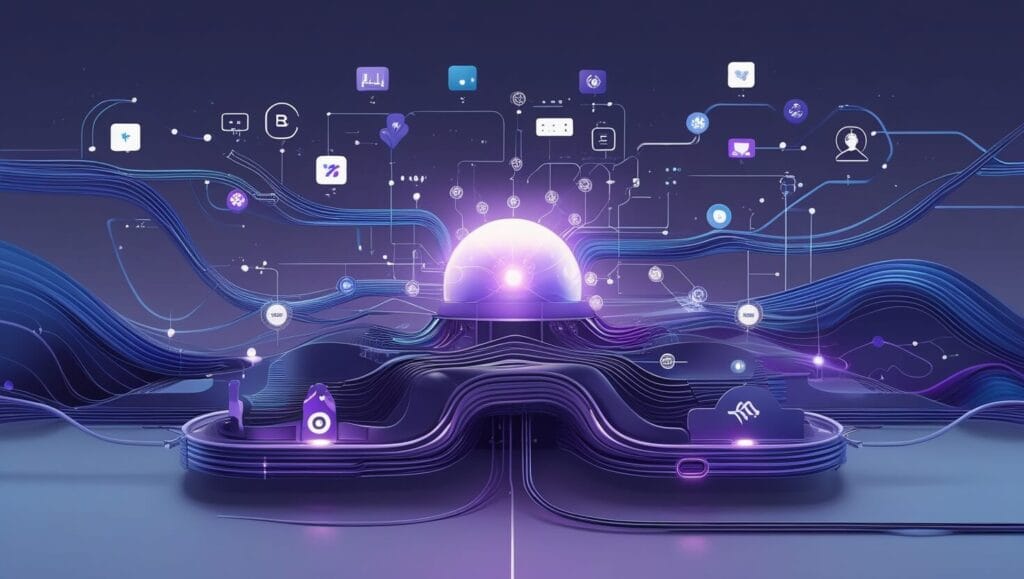
Modern AI project management tools excel at creating unified workflows by integrating with existing business applications and data sources. This integration capability is crucial for teams that rely on multiple tools and platforms to manage their projects effectively.
The best AI project management platforms can connect with popular applications like Slack, Microsoft Teams, Google Workspace, and various CRM systems. This connectivity ensures that project data flows seamlessly between different tools, eliminating the need for manual data entry and reducing the risk of information silos.
API integrations have become more sophisticated, allowing AI project management tools to pull data from custom applications and legacy systems. This flexibility is particularly valuable for enterprise teams that have invested heavily in specific software solutions and need project management tools that can work within their existing technology stack.
Data synchronization across platforms ensures that project information remains consistent and up-to-date regardless of where team members access it. AI algorithms can detect and resolve data conflicts automatically, maintaining data integrity without requiring manual intervention.
The ecosystem benefits extend beyond simple data sharing. AI project management tools can leverage information from integrated applications to provide more accurate predictions and recommendations. For example, by connecting with sales CRM data, these tools can adjust project timelines based on client interaction patterns and requirement changes.
Choosing the Right AI Project Management Tool
Selecting the ideal AI project management tool requires careful consideration of your team’s specific needs, existing workflows, and growth objectives. The decision shouldn’t be based solely on feature lists or pricing comparisons, but rather on how well the tool aligns with your team’s working style and project requirements.
Team size and complexity are primary factors in tool selection. Smaller teams might benefit from simpler AI project management tools that focus on automation and basic insights, while larger organizations typically need more sophisticated platforms with advanced analytics and enterprise-grade integrations.
Industry-specific requirements can significantly influence tool choice. Creative teams might prioritize AI features that support design workflows and creative collaboration, while software development teams need tools that integrate well with development environments and support agile methodologies.
Budget considerations should include both direct costs and implementation expenses. While some AI project management tools offer attractive pricing, the total cost of ownership includes training, integration, and ongoing support requirements. It’s important to evaluate these factors alongside feature benefits to make an informed decision.
Trial periods and pilot programs are essential for evaluating AI project management tools effectively. Most platforms offer free trials or demo versions that allow teams to test key features and assess compatibility with existing workflows. I recommend involving actual team members in these evaluations to get realistic feedback about usability and effectiveness.
Implementation Best Practices for AI Project Management Tools
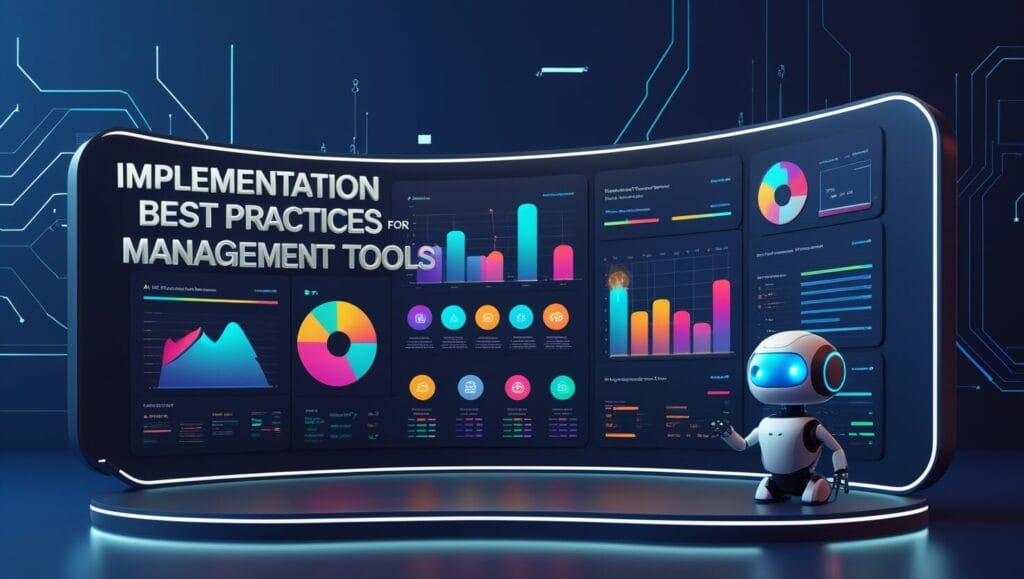
Successfully implementing AI project management tools requires strategic planning and careful change management. Based on my experience helping teams transition to AI-powered platforms, there are several critical factors that determine implementation success.
Start with a clear understanding of your current project management challenges and specific goals for improvement. AI project management tools are most effective when they address real pain points rather than simply adding new features to existing workflows. Document your team’s current processes, identify bottlenecks, and establish baseline metrics for measuring improvement.
Data quality and historical information play crucial roles in AI effectiveness. Before implementing new AI project management tools, clean up existing project data and ensure that historical information is accurate and complete. The AI algorithms rely on this data to make predictions and recommendations, so poor data quality will result in suboptimal performance.
Training and adoption strategies should focus on demonstrating value rather than explaining features. Team members are more likely to embrace AI project management tools when they understand how these capabilities will make their work easier and more efficient. Provide practical examples and use cases that relate directly to their daily responsibilities.
Gradual rollout approaches tend to be more successful than complete system replacements. Consider implementing AI project management tools for new projects first, allowing teams to become comfortable with the platform before migrating existing initiatives. This reduces disruption and provides opportunities to refine processes based on real-world experience.
Measuring Success and ROI with AI Project Management Tools
Quantifying the impact of AI project management tools requires establishing clear metrics and tracking mechanisms from the beginning of implementation. The most successful organizations focus on both quantitative measurements and qualitative improvements when evaluating AI project management platform effectiveness.
Project completion times are often the most visible metric for measuring AI project management tool success. Track average project duration before and after implementation, but also consider the complexity and scope of projects to ensure fair comparisons. Many teams see 20-30% improvements in project completion times within the first six months of using AI-powered platforms.
Resource utilization metrics provide insights into how AI project management tools optimize team productivity. Monitor metrics like task completion rates, overtime hours, and team member satisfaction scores to understand the broader impact on workforce efficiency. AI tools often reduce administrative overhead, allowing team members to focus more time on value-added activities.
Budget accuracy and cost control improvements are significant benefits of AI project management tools. These platforms can predict budget overruns and suggest cost-saving measures based on project data analysis. Track budget variance percentages and compare them to historical averages to quantify financial benefits.
Client satisfaction and stakeholder engagement metrics often improve with AI project management tools due to better visibility and communication. Monitor client feedback scores, project delivery quality ratings, and stakeholder satisfaction surveys to understand the external impact of improved project management capabilities.
Future Trends in AI Project Management

The AI project management landscape continues to evolve rapidly, with emerging technologies promising even more sophisticated capabilities in the coming years. Understanding these trends can help organizations make informed decisions about platform selection and implementation timing.
Advanced natural language processing capabilities will make AI project management tools more conversational and intuitive. Future platforms will understand complex project requirements expressed in natural language and automatically generate comprehensive project plans, resource allocations, and timeline estimates. This will significantly reduce the technical barrier to effective project management.
Predictive analytics will become more sophisticated, incorporating external data sources like market trends, weather patterns, and economic indicators to provide more accurate project forecasting. AI project management tools will be able to predict and adapt to external factors that could impact project success, providing unprecedented visibility into project risks and opportunities.
Automated decision-making capabilities will expand beyond task management to include strategic project decisions. Future AI project management platforms will be able to recommend project portfolio optimizations, suggest resource reallocation strategies, and even identify opportunities for new project initiatives based on organizational goals and market conditions.
Integration with emerging technologies like IoT sensors, blockchain, and augmented reality will create new possibilities for project monitoring and management. AI project management tools will incorporate real-time data from connected devices, provide immutable project audit trails, and support virtual collaboration environments that feel more natural and productive than current video conferencing solutions.
AI Project Management
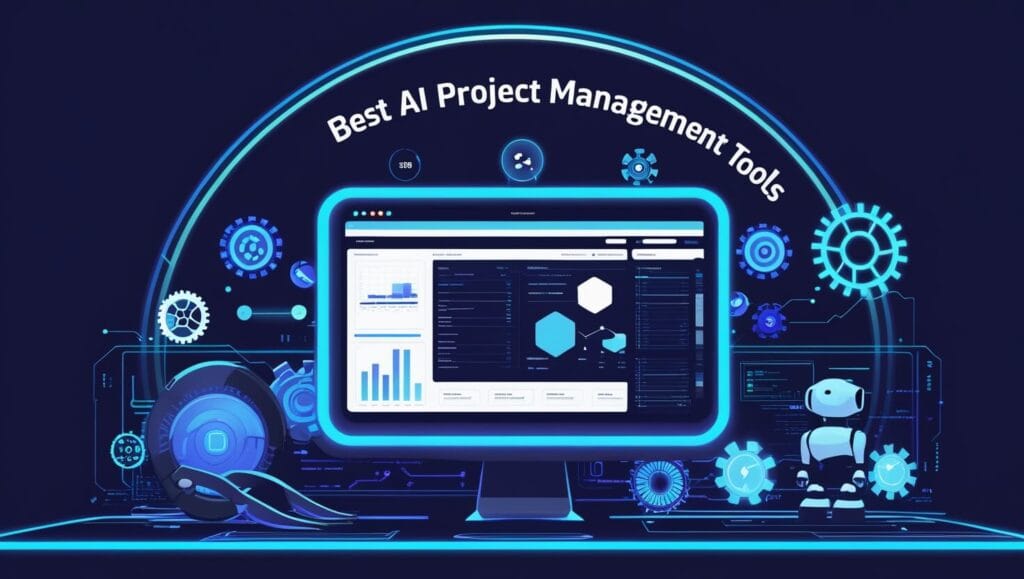
The transformation of project management through artificial intelligence represents one of the most significant productivity advances in modern business operations. Throughout this comprehensive guide, we’ve explored how AI project management tools are revolutionizing everything from basic task automation to sophisticated predictive analytics and strategic decision support.
The AI project management platforms highlighted in this article – including Monday.com AI, Asana Intelligence, ClickUp AI, Notion AI, and Trello with Butler AI – each offer unique strengths that can address different organizational needs and project management challenges. The key to success lies not in choosing the most feature-rich platform, but in selecting the AI project management tool that best aligns with your team’s working style, project complexity, and growth objectives.
As we continue through 2025, the competitive advantage will increasingly belong to organizations that effectively leverage AI project management tools to optimize their workflows, improve resource utilization, and deliver better outcomes for their stakeholders. The investment in these platforms pays dividends not only in improved efficiency but also in team satisfaction, client relationships, and overall business performance.
Remember that implementing AI project management tools is not just about adopting new technology – it’s about embracing a more data-driven, predictive approach to project management that can transform how your organization plans, executes, and delivers value. The teams that start this journey today will be best positioned to capitalize on the even more advanced AI capabilities that are already on the horizon.


